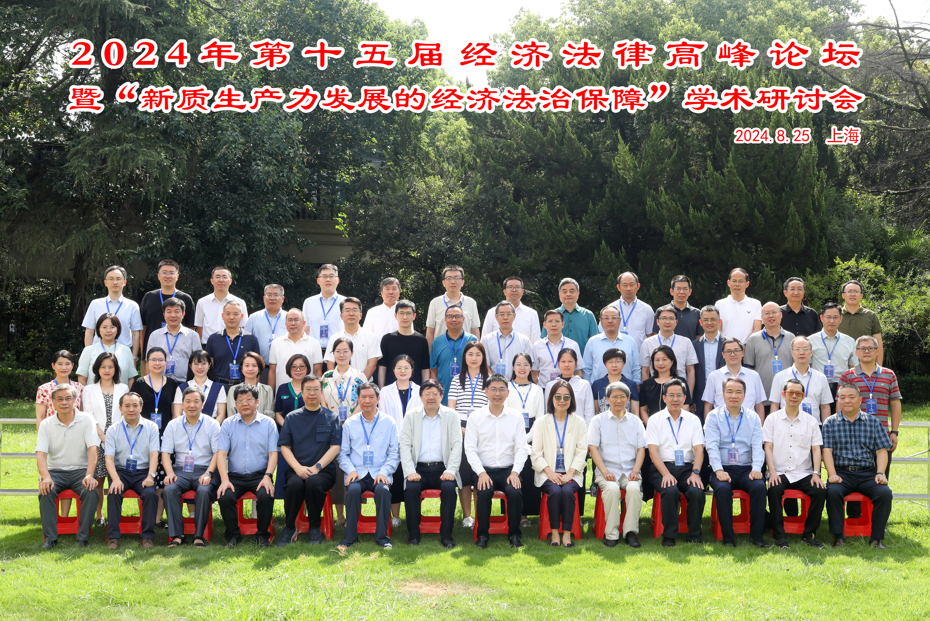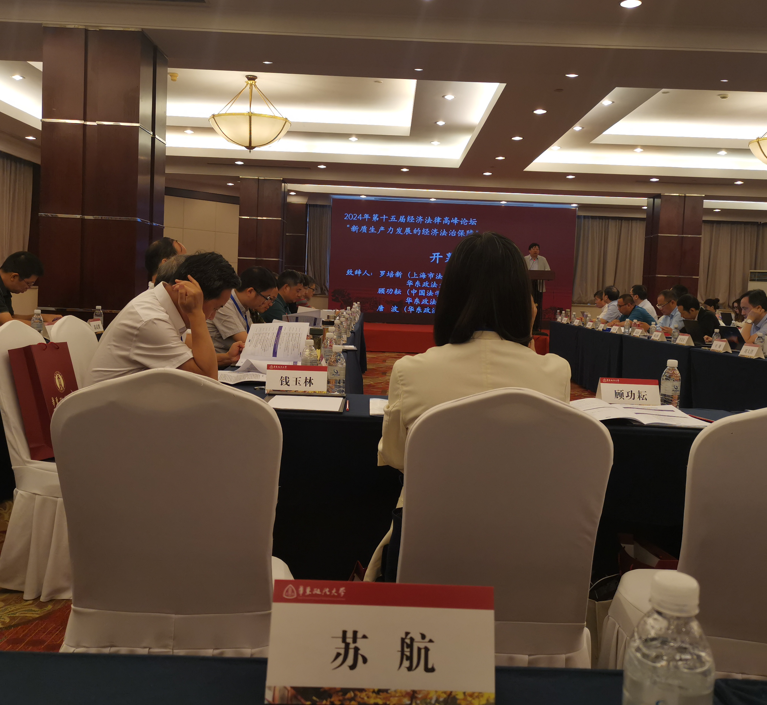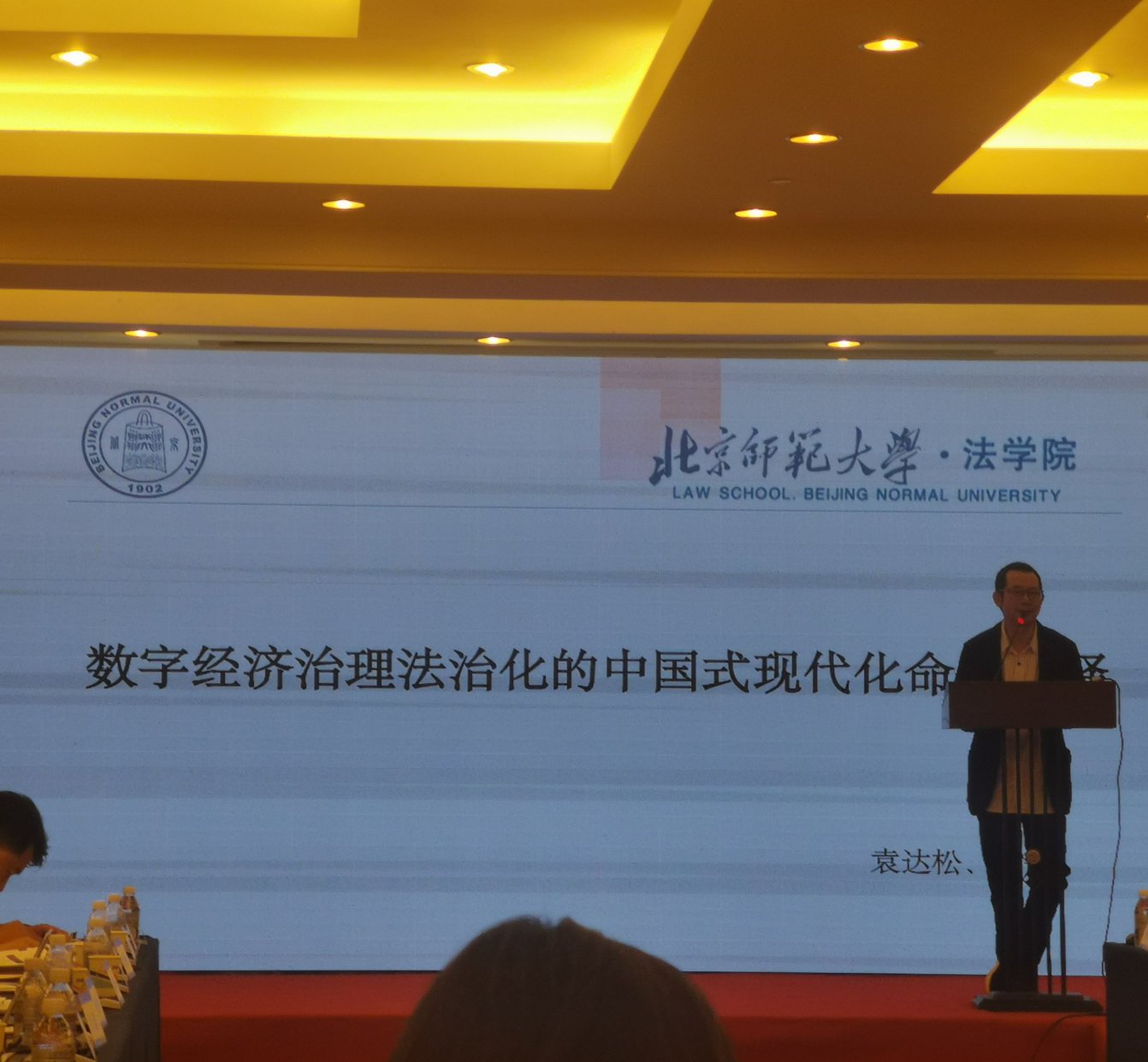

On August 25, 2024, the 15th Economic and Legal Summit Forum was successfully held at the Shanghai Longbai Hotel. This forum was hosted by the School of Economic Law of East China University of Political Science and Law, the Economic Law Association of Shanghai Law Society, and the Institute of Economic Law of East China University of Political Science and Law, and organized by the Yu Weiqing Financial Law Institute of East China University of Political Science and Law.

The forum's central theme was "Economic and Legal Guarantees for the Advancement of New Productive Forces," with in-depth explorations conducted across five key topics: foundational theoretical research in economic law for fostering new productive forces, investigations into legal frameworks supporting macroeconomic control for the growth of new productive forces, examinations of legal mechanisms for market regulation to bolster the development of new productive forces, studies on financial legal safeguards for the enhancement of new productive forces, and research on additional economic legal matters pertinent to the evolution of new productive forces. This gathering attracted over 70 experts, scholars, and researchers from universities, research institutions, and practical institutions, including Renmin University of China, Peking University, and China University of Political Science and Law. They converged to deliberate on the critical issues of economic legal protection for the progression of new productive forces, to exchange perspectives in lively discussions, and to forge consensus through meaningful dialogue. In doing so, the forum aimed to expand the scholarly terrain within the domain of economic law and to contribute legal insights that would propel the development of new productive forces in China.
The scholarly paper titled "Interpretation of the Chinese-style Modernization Proposition of Legalization of Digital Economic Governance," co-authored by Professor Yuan Dasong and doctoral candidate Su Hang from the Law School of Beijing Normal University, was featured in the conference's collection of academic works. Professor Yuan Dasong was extended an invitation to deliver a keynote address within the session dedicated to "Basic Theoretical Research on Economic Law for the Advancement of New Productive Forces."
The rule of law stands as a cornerstone in the edifice of China's modernization. The achievement of modernization necessitates the underpinning of the rule of law, just as the progression of the rule of law in national governance must align with the tenets of modernization. The digital economy is a pivotal expression of new productivity; however, its governance structure remains immature, and its governance capabilities are yet to be fully realized. Current legal practices do not entirely correspond with the domestic industrial development landscape, nor do they fully harmonize with international legal norms. In the realm of digital economy legislation, it is imperative to embrace a philosophy of legislative caution, incorporating the principle of modesty, and to commence with decentralized legislative initiatives at the grassroots level. As an intrinsic component of Chinese-style modernization, the rule of law should be employed to guarantee the realization of common prosperity within the digital era. Guided by the comprehensive national security concept, the rule of law should facilitate a harmonious interaction between high-quality development and high-level security, guard against the overgeneralization of security concerns, and champion a legal framework for an open and inclusive global digital economy governance, underpinned by the vision of a community with a shared future for mankind.

